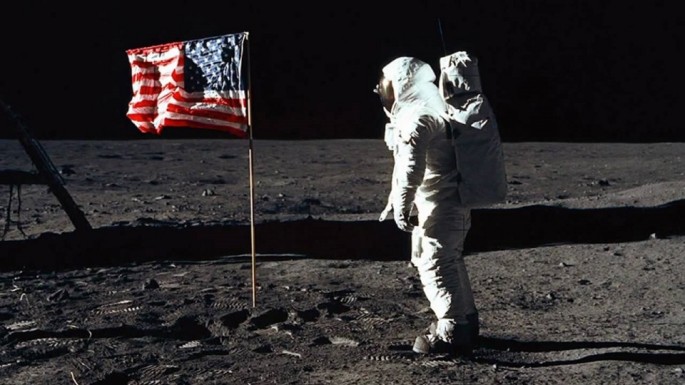With United States-Russia relations already becoming more uneasy, a Russian newspaper published an op-ed on Tuesday in which a government official called for an investigation into U.S. Moon landings. He argued that the "disappearance" of video footage and lunar rocks from the Apollo missions should be investigated.
The suggestion was made by Vladimir Markin of Russia's Investigative Committee, according to Hamptom Roads. Moscow Times translated the request.
Markin supports an inquiry regarding the disappearance of the original film footage from the 1969 moon landing, the first one ever. He also wants an investigation into the disappearance of 400 kg (882 lbs.) worth of lunar rocks brought back to Earth during different moon missions, according to NYC News.
Markin claimed that he was not implying that America made a fake film about U.S. lunar landings, and that the flight to the moon was a hoax. He is more concerned about the moon footage and lunar rocks missing. It is a "common loss."
NASA already admitted in 2009 that it had erased the original footage of the first lunar landing among 200,000 other tapes, to cut costs. It has since restored the video clip through sources such as CBS News, which has produced superior quality.
In the past, NASA has also stressed that Moon rocks and soil differ from Earth's surface. Most of the lunar rocks are stored at Johnson Space Center in Houston, although other pieces are housed in various international museums.
Markin mentioned in his op-ed that the U.S. "crossed the line" when it launched a corruption probe involving several FIFA officials. That could explain his conspiracy theories about U.S. Moon landings.
The Russian official complained in his opinion article that the U.S. confused government bargaining with corruption. He referred to the media rumor that Germany shipped military arms to Saudi Arabia to help it win a bid for the 2006 World Cup.
Today's tense U.S.-Russia relations and calls to revisit U.S. moon landings hark back to the Cold War (1947-1991). Key components of the era's Space Race included a competition between the Americans and Soviets to conduct the first manned lunar landing.



























